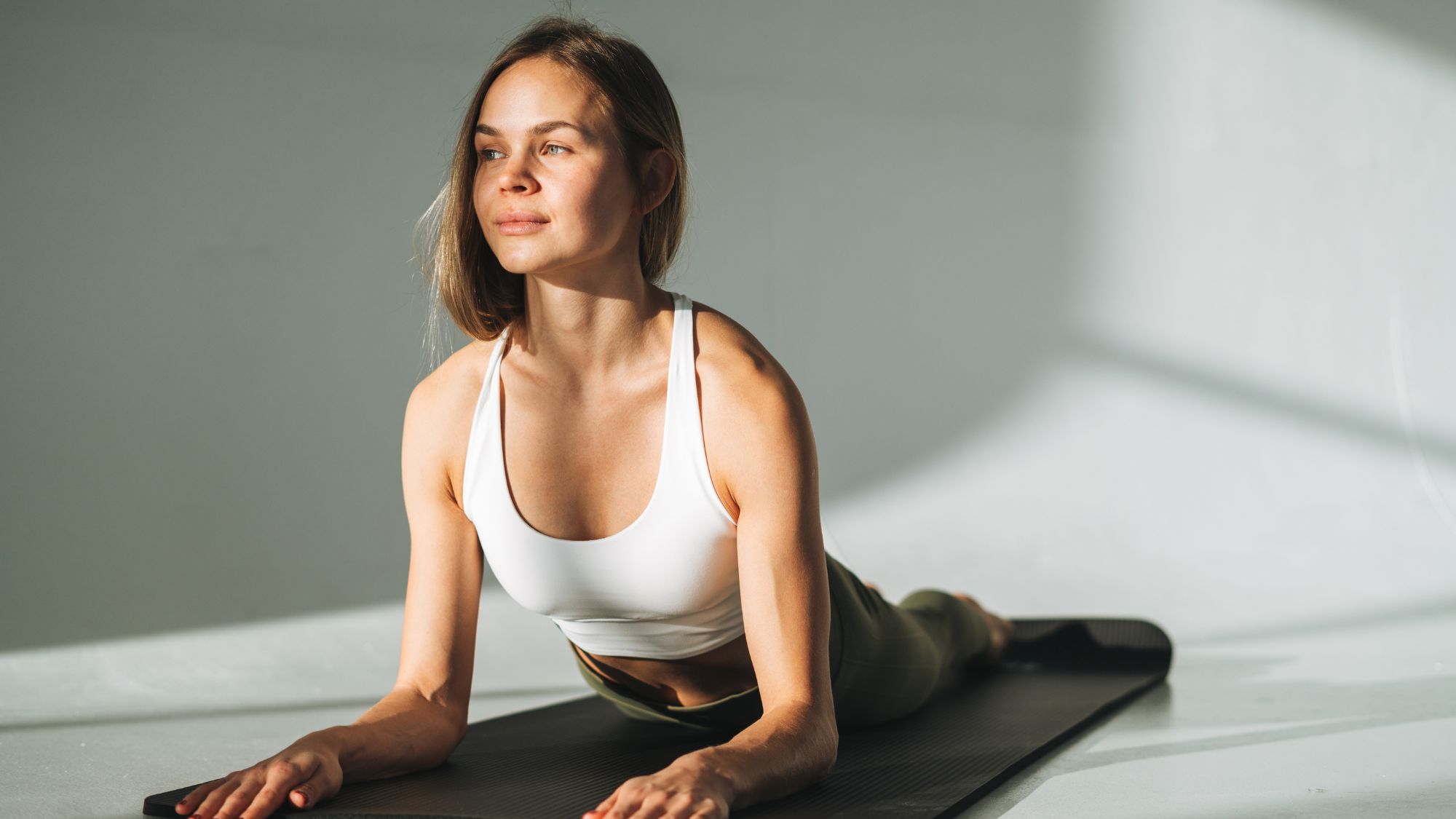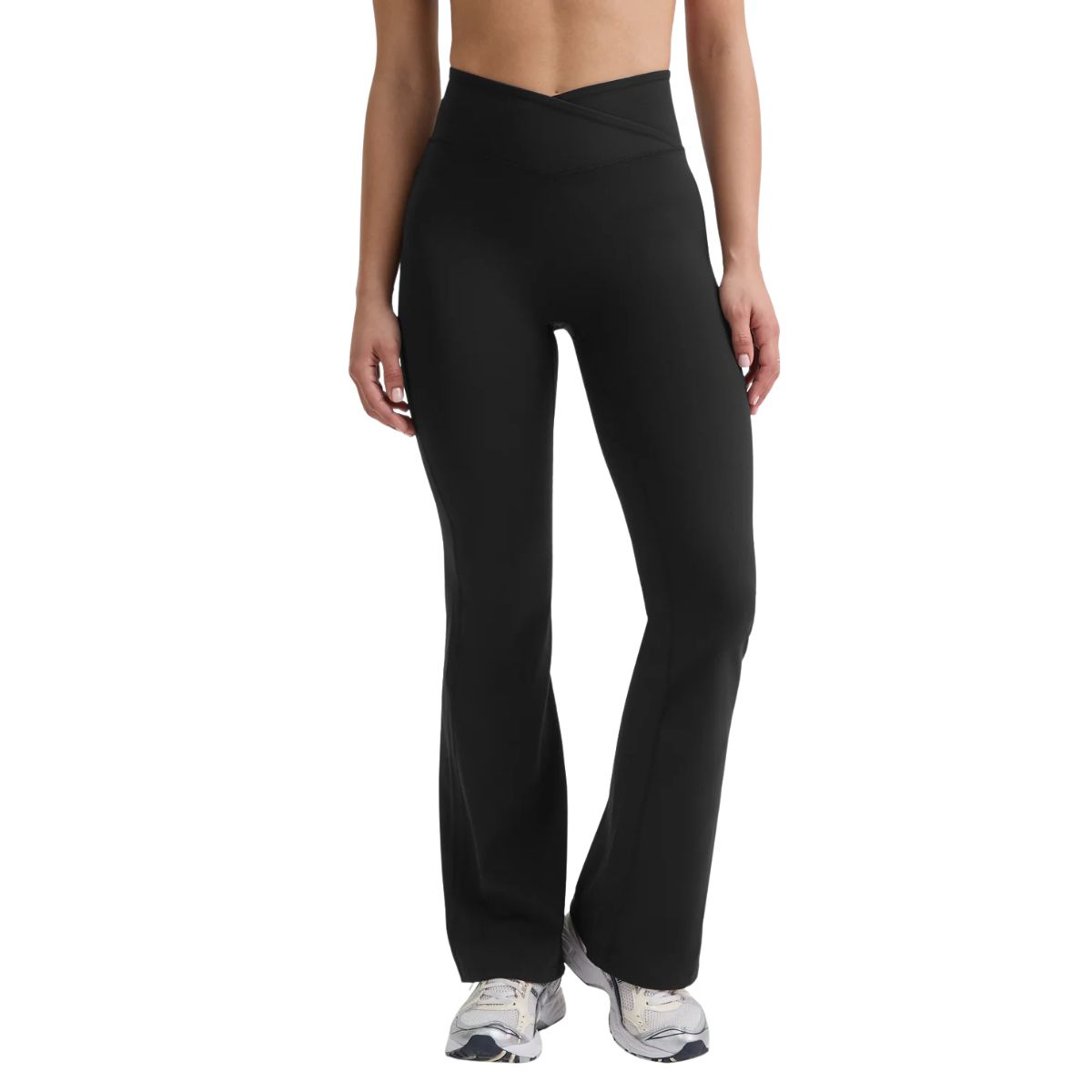FYI, Poor Posture Can Impact Your Hormones, Mood, and More - 6 Simple Ways to Improve Yours
Keep scrolling for simple, actionable, at-home tips.


Celebrity news, beauty, fashion advice, and fascinating features, delivered straight to your inbox!
You are now subscribed
Your newsletter sign-up was successful
As an osteopath, I’ve noticed a real surge in the number of people coming into the clinic wanting to improve their posture. This is partly because, since COVID, our daily habits have shifted dramatically. Many of us adapted to working from home, often at makeshift desks, dining tables, or even propped up in bed. Hours spent hunched over laptops, scrolling on phones, or slouching through endless video calls have taken a real toll on our alignment.
At the same time, online meetings have made people more aware of how they sit and move; it’s hard not to notice your rounded shoulders or forward head position staring back at you on screen. This new self-awareness, combined with physical strain and tension, has led more people to seek support to realign, rebalance, and restore their posture than ever before.
Many people see posture as purely physical; shoulders back, head held high, and an elegant, long neck. But what if I told you that the way you hold yourself could influence your hormones, mood and energy levels? I see daily how our bodies and minds are interconnected. Poor posture doesn’t just affect how you look; it can quietly disrupt the way your body functions, including your hormonal balance.
For more on the small, actionable tweaks you can make every day to improve your posture from home, keep reading. And if you're interested in learning more about all things posture, don't miss our features on TikTok's trending posture walking, the best at-home posture exercises, and how one Health Writer got on trying a posture challenge, here.
Keen to improve your posture? I'm an osteopath - my failsafe guide
Are posture and hormones connected?
This one's an interesting one - but short answer: yes.
When your posture collapses - think rounded shoulders, a forward head, and a compressed chest - you’re not just closing off your body language, but you’re compressing your internal systems, too. This includes your spine, nervous system, and even your endocrine glands, which are the control centres of your hormones.
Let’s start with the adrenal glands, which sit just above your kidneys. These tiny glands are responsible for producing cortisol and adrenaline, your key stress hormones. When your posture is slumped and your breathing shallow, the body can interpret this as a state of ongoing stress. This constant “stress signal” can lead to adrenal fatigue, making you feel tired, anxious, or wired-but-exhausted.
Celebrity news, beauty, fashion advice, and fascinating features, delivered straight to your inbox!
But it doesn’t stop there. Hormones like oxytocin (the bonding and “feel-good” hormone) and serotonin (your happiness hormone) can also be influenced by posture. When we stand tall, open up our chest and breathe deeply, we stimulate the vagus nerve which is a key player in our parasympathetic, or “rest and digest,” system. This helps lower cortisol and boosts feelings of calm and confidence.
So, when you “shrink” your posture, you might literally be shrinking your happy hormones, too.
Can my posture impact my mood?
Your posture doesn’t just affect your hormones, it actually reflects your emotions.
Think about it, and try and notice how you hold yourself. When you’re sad or stressed, your shoulders slump forward, breathing becomes shallow, and your chest feels tight. In contrast, when you’re confident and grounded, your spine naturally elongates and your breath deepens.
This happens partly through the mind-body feedback loop because, when you sit or stand tall, your nervous system interprets this alignment as a signal of safety and strength, reducing cortisol (the stress hormone) and supporting the release of serotonin and dopamine, which lift your mood.
Conversely, when you hunch forward, you compress your diaphragm, limiting oxygen intake and signalling to your brain that you’re under threat, which can heighten anxiety or negative emotions. Simply adjusting your posture can, quite literally, change the chemical messages your body sends to your brain.
I like to remind my patients that the body and mind are in constant conversation. Improving one can positively shift the other.
My Top Tips to Improve Posture and Boost Hormonal Balance
1. Unfold your chest
Spend a few minutes each day opening your chest. Interlace your fingers behind your back, draw your shoulder blades together and take three slow, deep breaths. This counters hours of hunching over screens.
2. Check your head position
Imagine a string pulling the crown of your head gently toward the sky. Your chin should be slightly tucked, not jutting forward. This releases tension around the thyroid area.
3. Breathe with intention
Deep diaphragmatic breathing helps stimulate the vagus nerve, lower cortisol and support hormone regulation. Try inhaling for four counts, exhaling for six.
4. Move often
The body isn’t designed to stay in one position all day.
Top tip? Set reminders to stand, stretch, and roll your shoulders every 30 to 45 minutes.
5. Strengthen your core
A strong core supports your spine, reduces back pain, and helps maintain upright posture. Pilates, yoga, or simple planks can make a big difference.
6. Mind your mood and body language
When you notice yourself slumping, gently lift your chest, soften your shoulders, unclench your jaw and take a deep breath. This not only changes your physical stance but also signals safety and calm to your nervous system.
Bottom line?
From a clinical standpoint, I think of posture as a modulator, not a direct “hormone switch.” Good alignment doesn’t necessarily spike oxytocin or serotonin in the same way as a hug or drug, but by promoting a calm, parasympathetic-dominated state, it supports the internal environment in which those neurochemicals can function well.
So, the next time you relax your shoulders, lift your chest and take a deep breath to better your posture, remember that posture is more than just alignment of your spine, it can also affect your systems internally. Standing tall doesn’t just make you look more confident; it helps your body feel more balanced, energised, and hormonally in harmony.
Shop MC UK's go-to wellness products now:

Nadia Alibhai is the Director and Principal Osteopath of Back 2 Well-Being, a leading multidisciplinary clinic in London. With over 20 years of experience, she has helped thousands of patients recover from postural, stress-related, and lifestyle-driven conditions.
Known to many of her clients, from high-performing executives and celebrated actors to busy parents, as their “secret weapon for total well-being”, Nadia’s approach blends osteopathic expertise with a deep understanding of how physical, emotional, and hormonal health are all connected.


